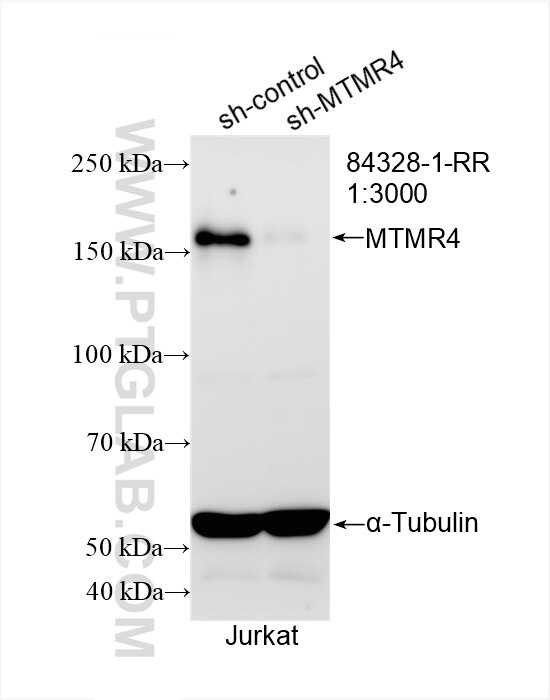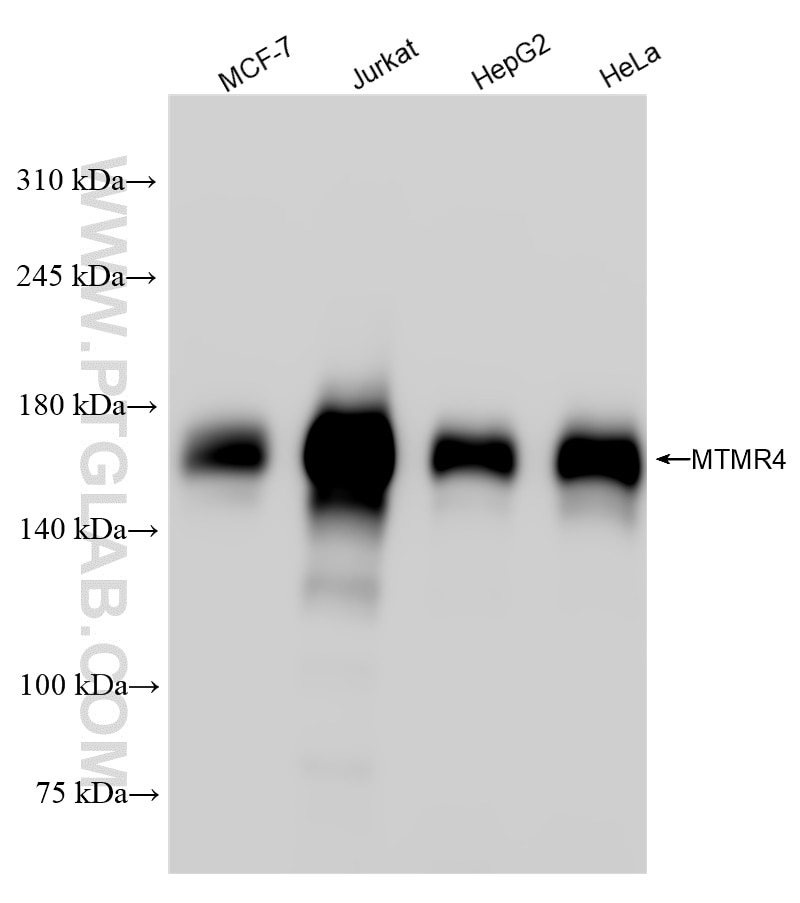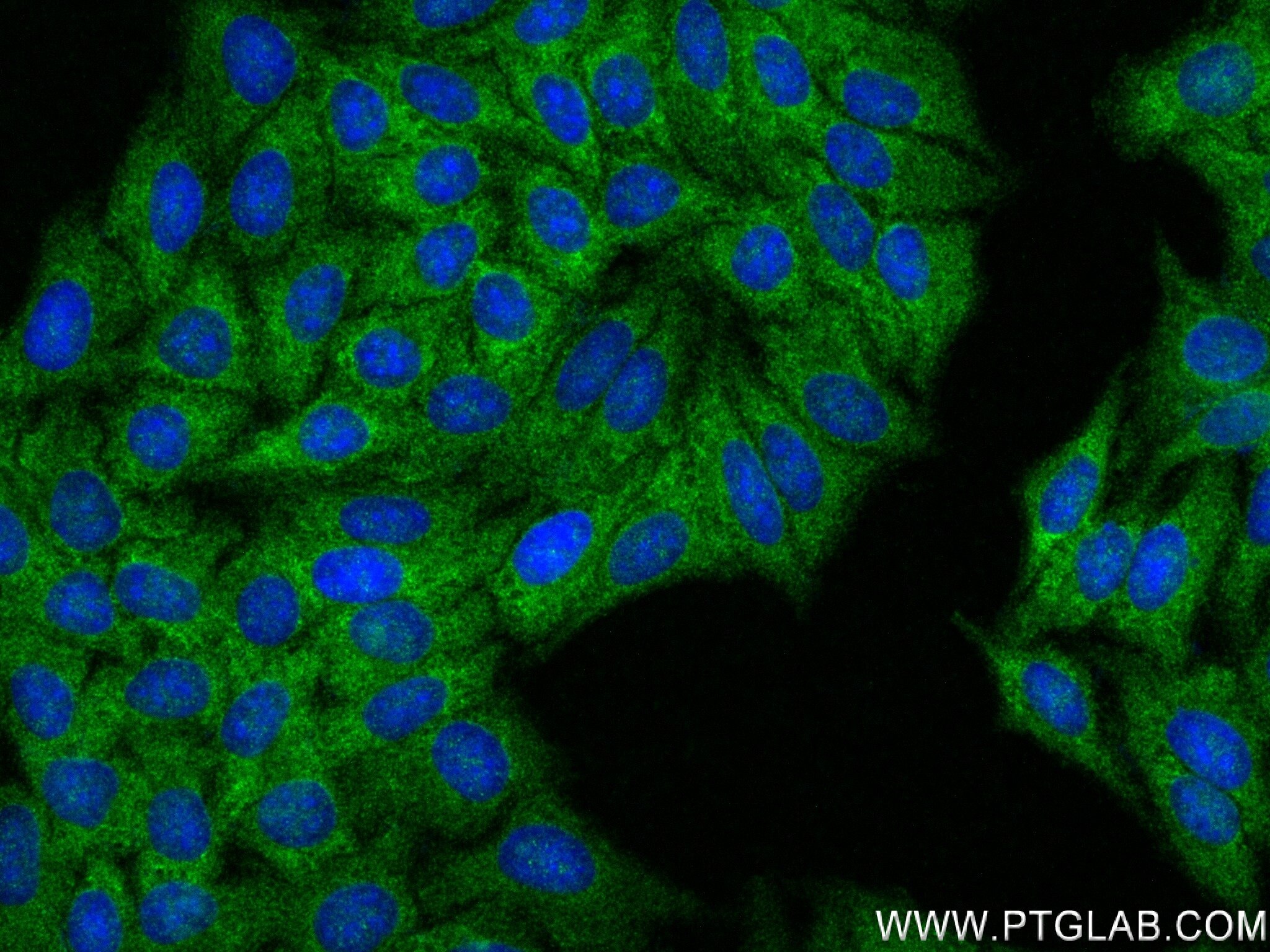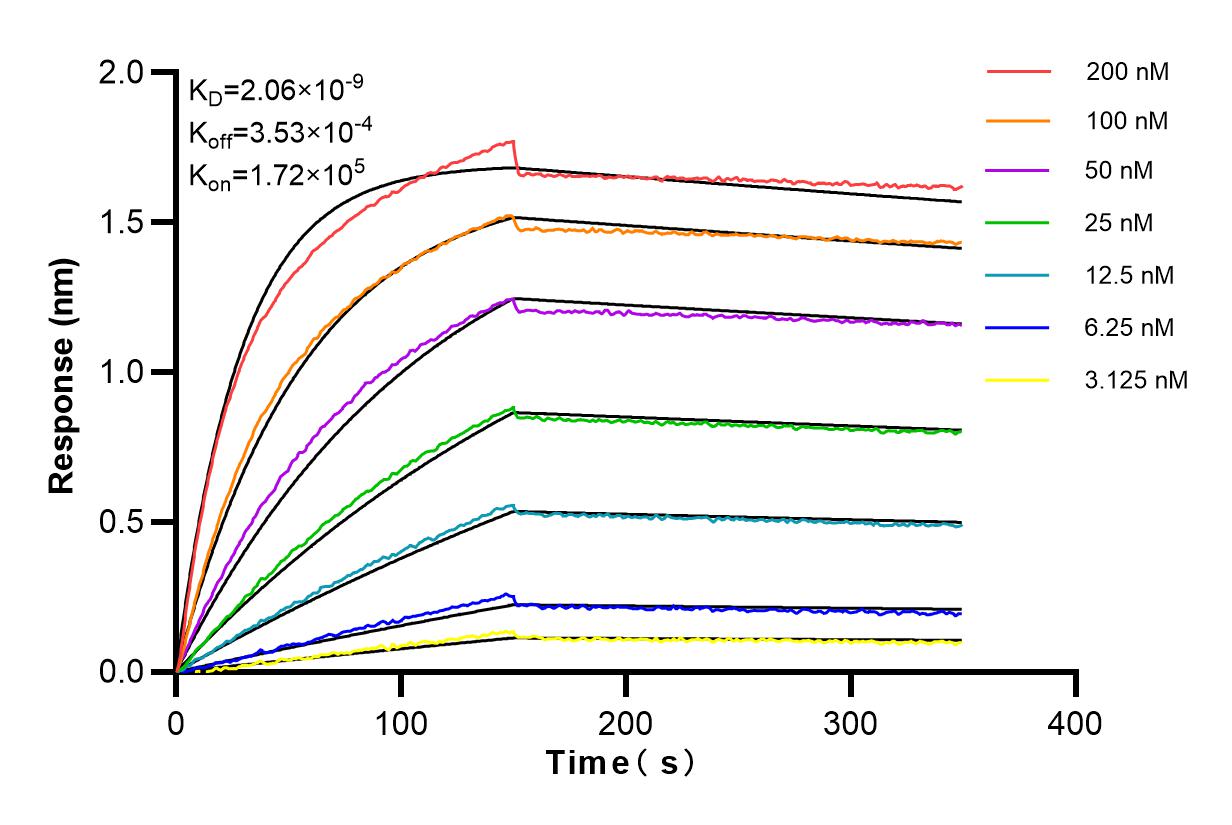Validation Data Gallery
Tested Applications
| Positive WB detected in | MCF-7 cells, Jurkat cells, HepG2 cells, HeLa cells |
| Positive IF/ICC detected in | HepG2 cells |
Recommended dilution
| Application | Dilution |
|---|---|
| Western Blot (WB) | WB : 1:500-1:2000 |
| Immunofluorescence (IF)/ICC | IF/ICC : 1:125-1:500 |
| It is recommended that this reagent should be titrated in each testing system to obtain optimal results. | |
| Sample-dependent, Check data in validation data gallery. | |
Product Information
84328-1-RR targets MTMR4 in WB, IF/ICC, ELISA applications and shows reactivity with human samples.
| Tested Reactivity | human |
| Host / Isotype | Rabbit / IgG |
| Class | Recombinant |
| Type | Antibody |
| Immunogen | MTMR4 fusion protein Ag4310 相同性解析による交差性が予測される生物種 |
| Full Name | myotubularin related protein 4 |
| Calculated molecular weight | 1195 aa, 133 kDa |
| Observed molecular weight | 160-170 kDa |
| GenBank accession number | BC035609 |
| Gene Symbol | MTMR4 |
| Gene ID (NCBI) | 9110 |
| RRID | AB_3671869 |
| Conjugate | Unconjugated |
| Form | Liquid |
| Purification Method | Protein A purfication |
| UNIPROT ID | Q9NYA4 |
| Storage Buffer | PBS with 0.02% sodium azide and 50% glycerol , pH 7.3 |
| Storage Conditions | Store at -20°C. Stable for one year after shipment. Aliquoting is unnecessary for -20oC storage. |
Background Information
Myotubularin-related protein-4 (MTMR4), also named FYVE-DSP2, is a member of the myotubularin family of phosphoinositide phosphatases that selectively degrade the 3-position phosphate from the inositol ring of PtdIns(3)P and phosphatidylinositol 3,5-bisphosphate (PtdIns(3,5)P2) (PMID: 31543504). MTMR4 knockdown markedly suppressed the motility, fusion, and fission of PI(3)P- enriched structures, resulting in decreases in late endosomes, autophagosomes, and lysosomes, and enlargement of PI(3)P- enriched early and late endosomes(PMID: 29962048). MTMR4 is an intracellular protein with a calculated molecular mass of 133 kDa, and detected molecular weight in the papers is about 160-170 kDa, which may be due to post-translational modification (PMID: 19125695, PMID: 20736309).
Protocols
| Product Specific Protocols | |
|---|---|
| WB protocol for MTMR4 antibody 84328-1-RR | Download protocol |
| IF protocol for MTMR4 antibody 84328-1-RR | Download protocol |
| Standard Protocols | |
|---|---|
| Click here to view our Standard Protocols |



